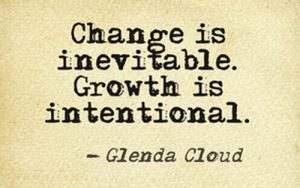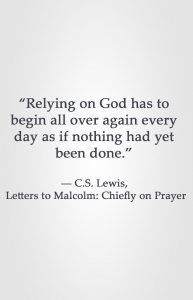Happy New Year folks!
Towards the end of the year, I attended a vision board workshop at church with a good friend and Christian sister called Olivia Mukam Wandji. As a project management specialist, Olivia often uses project management language in her speech. As she led us through our vision board construction she compared our lives and the ambitions we have for it to the life cycle of a project. She said as we begin this new decade outlining our visions, we should consider that we are planning a project and note that there will be different phases; the planning phase, implementation phase, another for monitoring and evaluation, before the project end. Each phase requires ‘planning’ and guidance.
This morning, I am thinking of her remark in another light. What about the cycle of our Christian lives? We rarely ever plan our Christian development the way we do our self-development, why don’t we care about the growth of our faith the way we do our professional growth? I understand that would be hard to do because faith isn’t something we should regard as mechanical, achievable in steps and such… after all, our Christian development is dependent on God’s grace, mercy and the transforming power of the Holy Spirit. Yet, I also think that our lack of planning in this part of our life is evidence of our lack of intentionality in our development as Christian. I recall reading some piece that admonished us to ‘respect God’s time’. The idea of respecting God’s time was odd to me, he is master/owner of time. It’s all his anyway. What time I commit to give him is my own out of the [surprisingly] inadequate hours I have to be productive. Yet the writer made a sound point that convicted me. Our lives run on scheduling and that speaks of intentionality. We have appointments entered in our calendar for months ahead, we have birthday notifications to remind us to wish those we love well, we respect meeting time and interview appointments and dates by being on time and ensuring we have nothing going on concurrently. We are very intentional with respecting time with fellow humans, our career and social commitments.
But when it comes to God? Not so much. Going to church is an option, not something we’ll be fined for if we miss- as is the case with missing some classes. So what if we do prayer and meditation at 5am today, 11am tomorrow and 3pm the next? At least we did it, there is no prescribed time to worship. Thinking this way is not altogether wrong, of course, God cares more about your heart and motivations than if you have a perfunctory routine of bible study at 6am every day. Yet, thinking this way also shows that we regularly take God for granted. In the absence of intentionality, we often short-change God. Give him less, because we didn’t intentionally set out to give him more. When we aren’t intentional about what time we do that meditation and prayer, or that bible study, etc. We end up giving God what’s left of our energy, attention and time after we’ve done everything else. Or worse, we forget altogether as we postpone it saying “I’ll do it later”.
Now imagine if we were more intentional not only ‘respecting God’s time’ but with our Christian journey as a whole. Imagine if we looked at our lives the way we look at our careers and said ‘I want to grow to this level of Faith’ the way we say ‘I want to reach this managerial level’. Imagine if we set out to develop habits that would develop us as Christians? This could be taking a course in scripture exegesis, training for youth ministry, or learning to be more forgiving?

Imagine if we had Christian growth goals and targets as we do career goals and weight loss targets! I’ve imagined it and I can already see that if I did that I would be a lot stronger as a Christian. Vision boards, five-year plans and all forms of goal setting are renowned for helping the individual stay focused. Having a target written down, broken into achievable steps and such makes it easier to achieve a big seemingly overambitious goal. Whether that goal is ‘becoming CEO of a multinational company’ or ‘becoming a better disciple of Christ’.
Please note that being intentional does not mean we set out to ‘earn our salvation’ nor does it insinuate that our Christian growth is solely up to us. The primary fact of our faith is that our salvation is freely given by Jesus Christ’s sacrifice on the cross for our transgression. Likewise, we literally cannot be better Christians without God himself enabling us to do so via the Holy Spirit. So why be intentional? The battle is not ours but the Lords, right? How does our being intentional or not matter in the grand scheme of things? The answer simply: being intentional is proof of our own commitment to God. You may not have to earn salvation, but if you have given your life to Christ and received salvation by his sacrifice, you are now a ‘slave’ to him. As a slave, you are to serve your master. Being intentional ensures you are an efficient servant. Similarly, though we cannot be better Christians without God himself enabling us to do so, we must first submit ourselves to God for the Holy Spirit to work in us. The act of submission is on us, and THAT part must be intentional. Submission doesn’t come easy, you choose it EVERY DAY. A quote by Rick Warren captures this perfectly. He says: “as humans, we are to be a living sacrifice to God. The problem with a sacrifice that is still alive is that it can crawl off the altar”.
 How often have you submitted yourself or even just a problem to God in prayer at night, only to wake up in the morning and pick up the problem land cart it around all day like it is still up to just you to solve it? It is so easy to crawl away from the altar that unless we are intentional about resubmitting ourselves regularly, we’ll find ourselves more off it than on it.
How often have you submitted yourself or even just a problem to God in prayer at night, only to wake up in the morning and pick up the problem land cart it around all day like it is still up to just you to solve it? It is so easy to crawl away from the altar that unless we are intentional about resubmitting ourselves regularly, we’ll find ourselves more off it than on it.To close, I hope we can all be more intentional in our Christian growth. I hope as we do self-assessments of our current status and make plans for the new decade, that we also do an assessment of where we are as Christians and plan to submit ourselves for transformation to be better more obedient, committed practitioners of the faith. If we do this, perhaps at the next #endofthedecade challenge, we’ll be able to see exponential growth in our faith and actions

 How often have you submitted yourself or even just a problem to God in prayer at night, only to wake up in the morning and pick up the problem land cart it around all day like it is still up to just you to solve it? It is so easy to crawl away from the altar that unless we are intentional about resubmitting ourselves regularly, we’ll find ourselves more off it than on it.
How often have you submitted yourself or even just a problem to God in prayer at night, only to wake up in the morning and pick up the problem land cart it around all day like it is still up to just you to solve it? It is so easy to crawl away from the altar that unless we are intentional about resubmitting ourselves regularly, we’ll find ourselves more off it than on it.